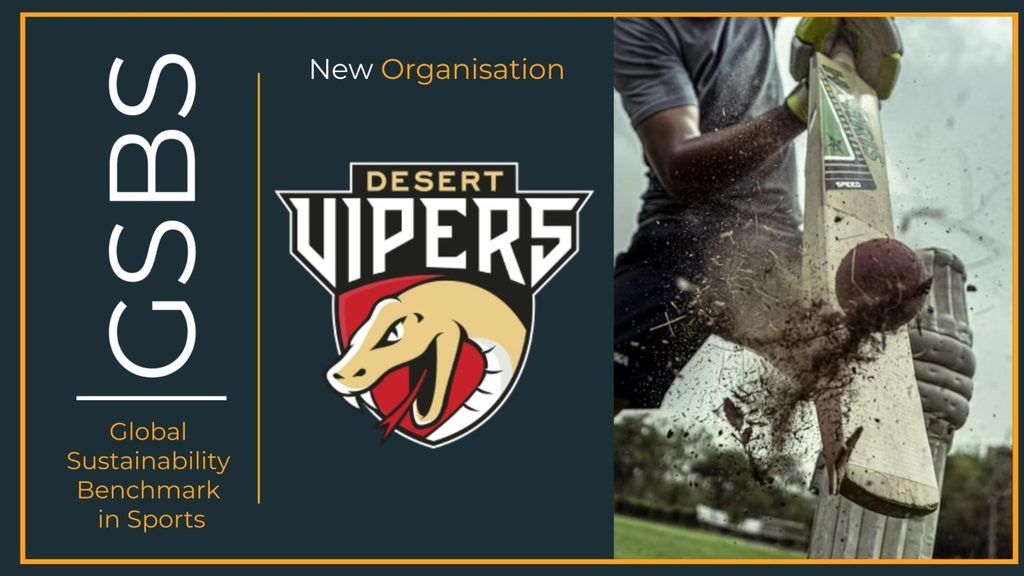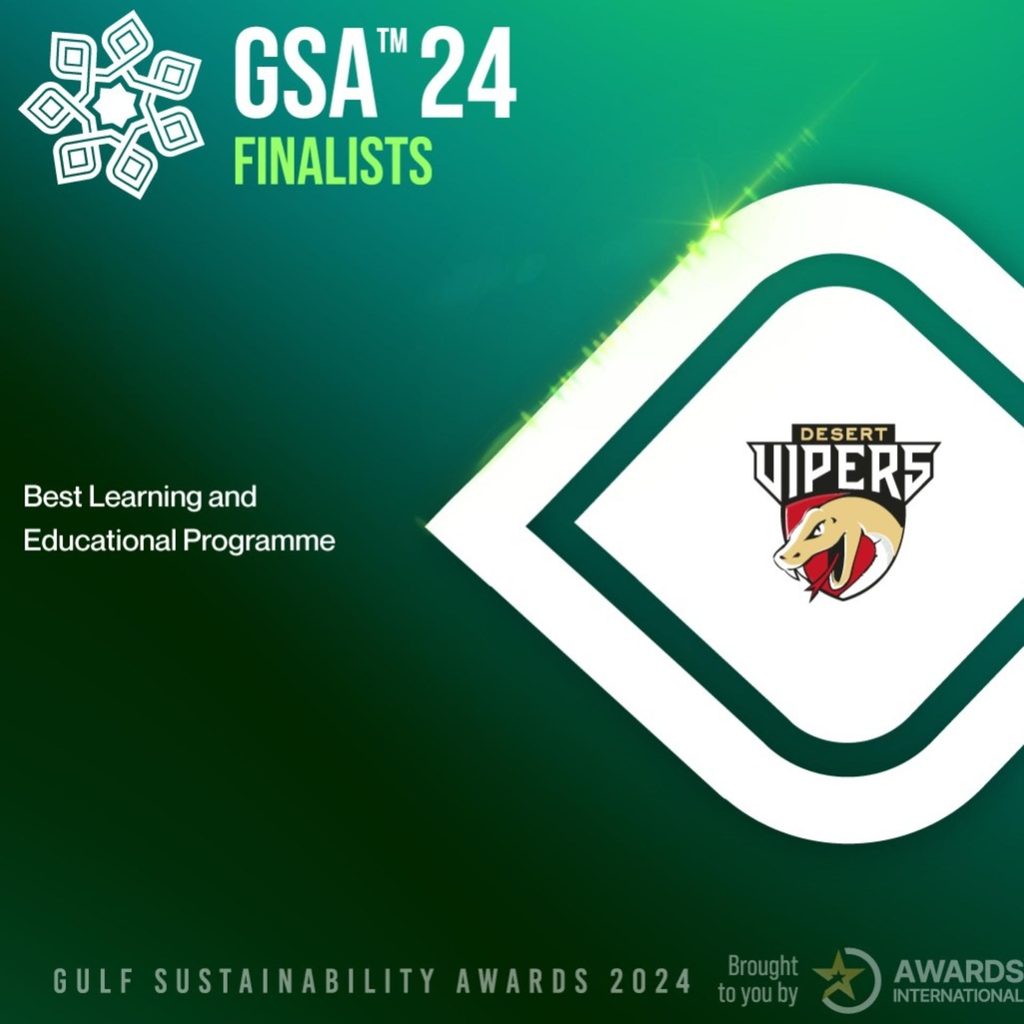
Why We Measure
One of the main reasons that we do this is because of our commitment to the United Nations Sports for Climate Action Framework. This framework commits us to Net Zero by 2040 and halving our emissions by 2030, as well as reporting annually on our footprint and using our platform as a vehicle to spread positive environmental change.
In Season One of ILT20, Desert Vipers collected and recorded their footprint for the vast majority of their activities. However, for Season Two, we have undertaken a lot more activities, such as the inaugural Viper Cup, for which we need to collect and record more data and with an increasing level of accuracy. I (Ben Hardy-Jones) have been leading on this work, but I’ve been helped enormously by several members of the team, including Danielle Clarkson, our Office Manager, and you can read more about her perspective on this in last time’s blog.
Many sports clubs are still yet to make it a common practice to collect and report publicly on their environmental footprint and so for us, one of the challenges is to understand how our footprint compares to others, and to see where are the areas where we are above or below the average value. For example in cricket, it is very normal to fly players from place to place (as the seasons move from location to location with the seasons), but what is the average footprint for a club when it comes to this? Are we better or worse? Are we making a positive difference in this space? However, no such numbers are publicly available, and as of now, we are a lone wolf in cricket when it comes to transparently sharing our impact.
The Global Sustainability Benchmark in Sports (GSBS)
Therefore, we need to think differently about how we can compare ourselves to others and push ourselves to continue to lead the charge in a way that brings people and the planet together. One of the ways that we are doing this this season is through the Global Sustainability Benchmark in Sports (GSBS). The GSBS is a platform and a tool in which to measure ourselves across a range of areas, such as environmental, social, governance, and commercial. Last year‘s report featured many different teams across a multitude of sports and global regions; however, to date there have been no entries from cricket, nor the Middle East. For this reason, we have signed up to the GSBS to advance the sustainability agenda for cricket and get it on the scoreboard, as well as for the Middle East.
One other reason that we have signed up to the GSBS is to ensure that we can look at how we are doing across other sports and regions - typically those who have historically focussed on sustainability much more than cricket and the Middle East have to date. This will do one of two things. Firstly it will allow us to compare ourselves to sports who are best in class across the world. Secondly, it will give us a platform to advance more positive change in the Middle East as we are showing that anyone can do it, no matter what region they are from, and so hopefully others will follow where we lead.

The Gulf Sustainability Awards
Closer to home now, and one of the ways in which we are evaluating and showcasing our initiatives is through the Gulf Sustainability Awards. These awards cover a range topics which are suitable for a range of businesses and industries. This year, Desert Vipers have entered the Best Learning and Educational Programme Award. We have entered our School Sustainability & Coaching Programme for this award as we believe that it is an innovative and positive programme that promotes and educates around sustainability across schools in the UAE. You can hear more about the school programme on this episode of Vipers Voices.
We submitted our application for this award a few weeks ago, and we are now pleased to share that we have been shortlisted for the final! This will be held in September. We hope that we can go all the way and win the award; however, there are some other very strong candidates which is fantastic to see, showing that sustainability is clearly advancing in the region, and we are part of that movement. Regardless of if we win or not, we have proven that sports teams can address sustainability issues in a positive and proactive way and efforts are valued highly within the sports community and the wider Gulf region. This gives us the impetus to continue to expand and improve on the programme, which we are doing next year, aiming to reach 40 schools (building on 25 last year), which is made possible through the employment of cricket’s only full-time Development Lead in the UAE, Jack Luffman. If you or anyone you know from schools in the UAE would like to get involved in our programme, please get in contact with us at jack@thedesertvipers.com!
Sustainability Spotlight – Gulf Sustainability Awards
This week we shine a light on the Gulf Sustainability Awards (GSA). The GSA is on a mission to recognise, reward, and promote outstanding sustainability initiatives across the Middle East. Many businesses will embrace sustainability practices over the coming years, so these awards are crucial to seeing where businesses stand when it comes to sustainability. Providing a platform to view the advancements in sustainability across a range of sectors and businesses is invaluable when trying to learn from the best in the business, so the fact that the GSA provides the opportunity to hear first-hand from others at the final is fantastic. We hope to win, of course, but we wish every other entrant the best of luck, and we are excited to hear more about the initiatives undertaken by so many others at the final in September!



